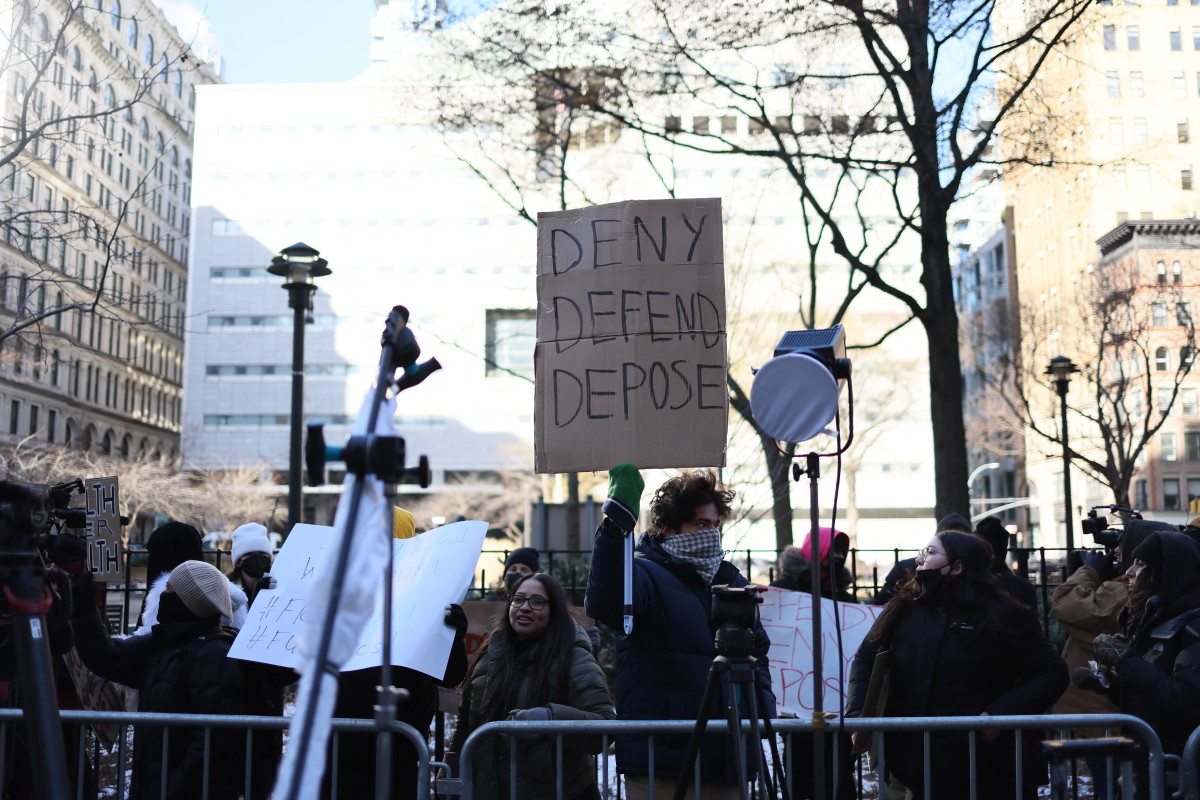Unitedhealth Shareholders 'fear' Impact Of Jarring Coverage Policies

UnitedHealth Group (UNH) , the largest health insurance provider in the U.S., has been in the midst of massive controversy after UnitedHealthcare CEO Brian Thompson was shot and killed in front of a Hilton hotel in midtown Manhattan last month.
The suspect, Luigi Mangione, allegedly left behind bullet shell casings at the scene that had the words “deny,” “defend” and “depose” written on them.
???? Buy 1 Year and Get 1 Year FREE on TheStreet Pro. Act now before it's gone ⏰
Those three words are often used to describe tactics health insurance companies use to avoid paying claims.
Related: Blue Cross Blue Shield halts strict coverage policy after outrage
The incident has sparked widespread conversation on social media about the many controversial policies and practices that health insurance companies across the country have adopted. Many people expressed outrage over the health insurance industry’s long history of denying insurance claims, even for people who are terminally ill.
Mangione even gained a fanbase as many people sided with him on his frustration with the health care industry, which has further worried health insurance companies.
After the shooting, UnitedHealthcare and other insurers removed leadership members' biographies from their websites.
Blue Cross Blue Shield even cut a policy, which was set to go into effect in February, that would limit insurance coverage for customers when they are receiving anesthesia care.
UnitedHealth shareholders flag concerning company practices
As the outrage against the healthcare industry’s practices continues to grow, UnitedHealth Group is facing heightened concerns from its shareholders.
Shareholders recently sent a proposal to UnitedHealth Group’s board of directors, demanding a report on the economic risks associated with “the company’s practices that limit or delay access to healthcare.”
People demonstrate against the healthcare industry stand outside Federal Criminal Court as Luigi Mangione, suspect in the killing of UnitedHealthcare CEO Brian Thompson, appears during an arraignment hearing on December 23, 2024 in New York City.CHARLY TRIBALLEAU/Getty Images
“At the board’s discretion, shareholders recommend the report evaluate how company practices impact access to healthcare and patient outcomes, including analyses of how often prior authorization requirements or denials of coverage lead to delay or abandonment of medical treatment and serious adverse events for patients,” reads the proposal.
Shareholders specifically flag practices such as “authorization requirements that result in delayed or avoided medical care,” denying health care to patients to increase profit, and hiking premiums and out-of-pocket costs.
More Health:
- Blue Cross Blue Shield halts strict coverage policy after outrage
- Top beauty brands face lawsuits over hair product concerns
- What the FDA isn't catching: tampons' hidden threat to your health
In the proposal, shareholders state that they “fear” that UnitedHealth Group's practices “may impair the value” of their portfolios.
They claim that those three practices may “increase short-term revenue while risking (the) company brand name.” Shareholders also state that these practices can threaten their portfolios by “increasing consumer debt, jeopardizing the health of policyholders and thereby reducing workforce productivity, straining government resources, and risking increased taxes.”
Related: UnitedHealthcare spotlight reveals pivotal AI failure
The move from UnitedHealth Group’s shareholders comes after the company revealed increased profits in its third-quarter earnings report for 2024. The company generated $100.8 billion during the quarter, which is an $8.5 billion increase compared to the same time period last year.
Health insurance denials and delays are a growing problem
Denials and delays of health care coverage from insurance companies have been a growing concern amongst Americans.
According to a recent survey from Ipsos, 43% of insured Americans are concerned that their health insurance company will deny future care.
Also, 51% of insured Americans said that they have trouble understanding their health insurance coverage, while about 50% said that they can’t anticipate how much they will be required to pay for their prescriptions.
In addition, 62% of all Americans and 64% of insured Americans said they “strongly agree” on “cracking down on practices by PBMs and health plans like inappropriate fail first (step therapy) and prior authorization that can limit patient access to medicines.”
Related: Veteran fund manager issues dire S&P 500 warning for 2025


